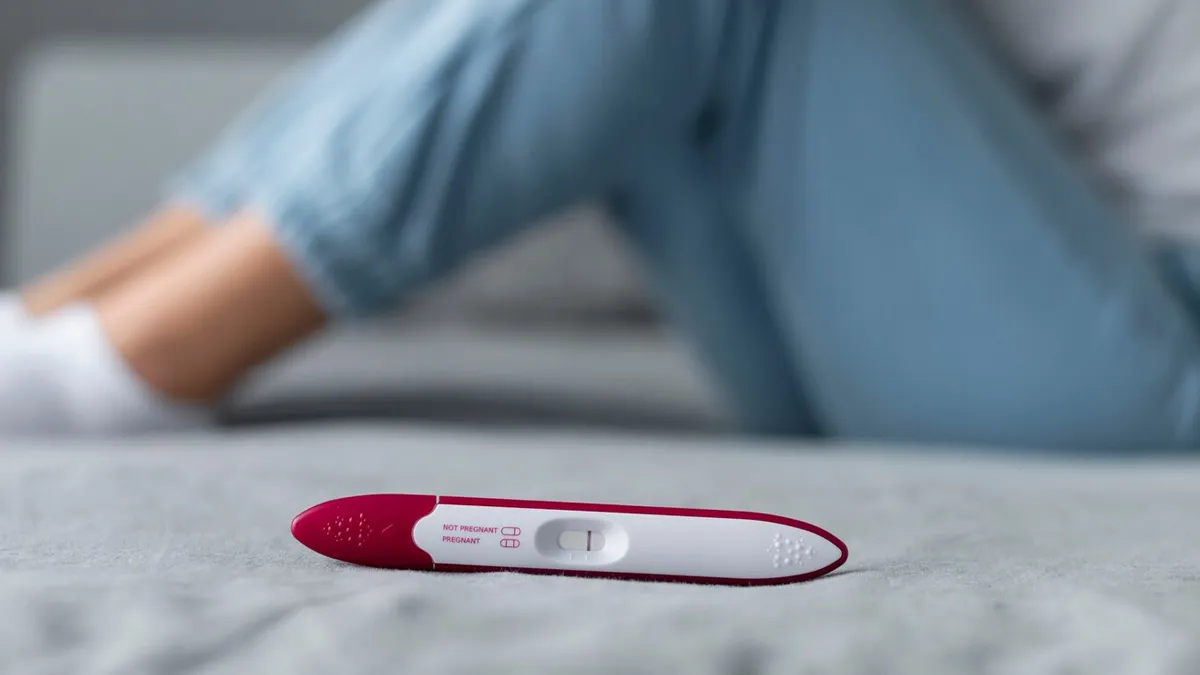
In vitro fertilization (IVF) has provided hope for numerous couples who struggle to get pregnant. Although reproductive technology has advanced, not every IVF cycle is successful. Enduring a failed cycle is emotionally frustrating and leaves individuals with countless unanswered questions. Understanding the reasons for the failure of IVF can help give insight and help individuals make informed decisions for future attempts, says Dr Kaberi Banerjee, infertility & IVF expert, and founder-medical director at Advance Fertility & Gynecology Centre, Delhi.
As per Dr Banerjee, IVF failures can be caused by various factors. While these problems can be very heart-wrenching, identifying the underlying cause with the help of an expert can give directions for future planning, keeping hope for a successful pregnancy alive.
The causative reasons behind failed IVF cycles can be:
In RIF, the embryo cannot stick to the uterine lining within a few days and does not continue to develop.
Growth or genetic abnormalities in the embryo can result in a futile egg implantation.
This is one of the most common reasons for IVF failure. With increasing age, particularly beyond 35, the eggs lose their quality, reducing the chances of implantation. In addition, even if an embryo is normal on testing in the lab, it may be deficient in the proper genetic potential to sustain its growth.
Don't Miss: World IVF Day 2024: What You Should Know Ahead Of Your IVF Journey
While male infertility problems are less often the reason for failure, these too must be assessed before undergoing IVF. Sperm defects, such as DNA damage, can also result in failed IVF attempts. At times, even with regular semen analysis, men carry defective sperm DNA, and this results in chromosomal abnormalities in the embryos.
Following a failed IVF cycle, there are several steps that can be taken to increase the likelihood of success in the subsequent attempt, says Dr Banerjee.
Any underlying conditions, such as fibroids, polyps, or hormonal imbalances that could interfere with implantation need to be addressed. Hysteroscopy can be used to eliminate these and enhance the uterine conditions, increasing the chances of success. An ovarian stimulation protocol ensures the best egg quality, which is essential for fertilization.
If there is a male infertility factor involved, Intracytoplasmic Sperm Injection (ICSI) can improve the likelihood of successful fertilization. Immune therapy with Intralipids or intravenous IVIG may also aid in eliminating any immune-based issues that might be causing problems with implantation.
The use of Preimplantation Genetic Screening (PGS) and Blastocyst Transfer can identify genetically fit embryos, minimizing the risk of miscarriage. Endometrial Receptive Array (ERA) testing can determine the optimal time for embryo transfer to enhance prospects. A karyotype test is a must to identify any chromosomal defect that might be influencing embryo growth or implantation, particularly in repeated failure.
A 3D ultrasound scan of the pelvis may be helpful in the evaluation of your uterus, detection of any anatomical defects like fibroids or polyps, and determination of the endometrial lining, all of which are important for successful implantation. In addition, a thrombophilia profile should be ordered to determine if any clotting disorders could lead to implantation failure or miscarriage so that specific treatment can be implemented.
TSH (Thyroid Stimulating Hormone) and prolactin levels should be tested to verify that there is adequate hormonal balance, as thyroid disease or hyperprolactinemia can affect fertility and the capacity to carry a pregnancy.
Proper diet, weight and stress management, emotional strength, counseling, support groups, and honest communication with partners can enable coping with the emotional strain of IVF failure.
"By addressing these factors, doctors can tailor the treatment approach to optimize conditions for the next IVF cycle, providing a more individualized and potentially more effective outcome. Though IVF results appear to be based on chance, scientific advancement and proactive life adjustments can substantially improve the odds of success," wraps up Dr Kaberi Banerjee.
Don't Miss: IVF Myths And Facts: Expert Addresses Common Misconceptions
If you liked the story, please share it. For more such articles, stay tuned to HerZindagi.
Our aim is to provide accurate, safe and expert verified information through our articles and social media handles. The remedies, advice and tips mentioned here are for general information only. Please consult your expert before trying any kind of health, beauty, life hacks or astrology related tips. For any feedback or complaint, contact us at [email protected].